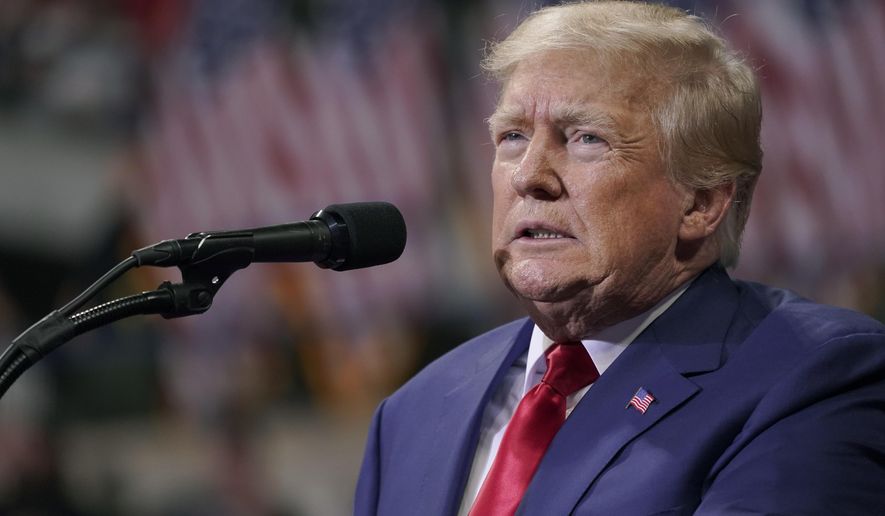Pundits often paint Trump-appointed judges and justices as MAGA loyalists, but court watchers say they do not fit that mold and have even ruled against former President Donald Trump in a number of his high-profile legal fights.
“Trump appointees have regularly disproven the personal attacks from legal experts that they are robotic ideologues following a MAGA agenda. Trump appointees, including his three Supreme Court nominees, have regularly voted against him or his company,” said Jonathan Turley, a law professor at George Washington University.
Legal analysts say Justices Clarence Thomas and Samuel A. Alito Jr. have been more sympathetic to Mr. Trump than his three Supreme Court appointees: Justices Neil M. Gorsuch, Brett M. Kavanaugh and Amy Coney Barrett.
Notably, the high court didn’t take up Mr. Trump’s election challenge litigation and did not shield the former president in his attempt to toss a congressional subpoena for his private tax and financial records.
What’s more, only Justices Thomas and Alito dissented in Trump v. Mazars USA. They argued that House Democrats’ subpoena for Mr. Trump’s financial records should fail.
The justices outright rejected Mr. Trump’s challenges from a handful of swing states brought by his allies contesting the 2020 election.
SEE ALSO: Supreme Court declines to block New York’s gun control law — for now
Justices Thomas and Alito, joined this time by Justice Gorsuch, were open to hearing a Pennsylvania case about whether mail-in ballots received three days after Election Day should be counted.
Liberal commentators often suggest that Trump appointees aim to “protect their guy,” as Obama administration acting Solicitor General Neal Katyal said of U.S. District Judge Aileen M. Cannon. The federal judge in South Florida granted Mr. Trump’s request in September to appoint a special master to review classified documents seized by the FBI from the former president’s Mar-a-Lago residence.
The Nation’s Elie Mystal and other liberal lawyers called Judge Cannon corrupt.
“Trump judges do not believe in the rule of law. They do not believe in precedent. They do not believe in facts. They do not believe in logic. They just believe in whatever’s going to help Donald Trump,” Mr. Mystal said in September on MSNBC.
It was two Trump-appointed circuit court appointees, Judges Britt Grant and Andrew Brasher, and Bush appointee Judge William H. Pryor Jr., who overruled Judge Cannon. They reasoned that she did not have jurisdiction to hear the dispute or issue an order for a special master.
In the court’s 21-page opinion, the panel called Mr. Trump’s arguments “a sideshow.”
SEE ALSO: Supreme Court asks for review of school dress code requiring skirts, dresses for girls
“The clash of Judge Cannon’s rulings with the appeals panel including Trump’s appointees Judges Brasher and Grant is an interesting microcosm of how there isn’t uniform agreement between Trump’s appointees and Trump’s dealings,” said Adam Feldman, a Supreme Court scholar and founder of the EmpiricalSCOTUS blog.
Ilya Shapiro, a senior fellow and director of constitutional studies at the Manhattan Institute, said when considering Mr. Trump and his allies’ “personal, business and political goals/shenanigans,” Trump-appointed judges haven’t acted any differently than other Republican or Democratic appointees.
In terms of policy rulings, however, Mr. Shapiro said Trump appointees tend to be more conservative.
“If we’re talking policy and ‘normal’ cases that implicate federalism, the separation of powers, and other issues of constitutional or statutory interpretation, then Trump-appointed judges have been more strongly originalist and textualist than others,” he said.
• Alex Swoyer can be reached at aswoyer@washingtontimes.com.




Please read our comment policy before commenting.